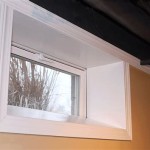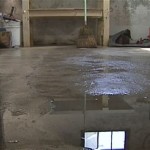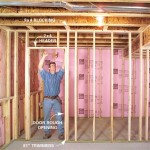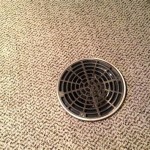Insulation for Basement Floor Joists: A Comprehensive Guide
Insulating basement floor joists is a crucial step in creating a comfortable, energy-efficient, and healthy living space. Basement insulation prevents cold air from seeping into the living areas above and helps maintain a stable temperature throughout the home. It also reduces moisture accumulation, prevents mold growth, and improves indoor air quality.
Choosing the Right Insulation Type
Selecting the appropriate insulation type for your basement floor joists depends on several factors, including budget, fire resistance, moisture resistance, and thermal efficiency. Common insulation options include:
- Batt insulation: Fiberglass and cellulose batt insulation are readily available and affordable, making them popular choices. However, they absorb moisture easily, reducing their effectiveness in damp basements.
- Rigid foam insulation: Polystyrene (XPS) and polyisocyanurate (PIR) foam insulation boards are moisture-resistant and have excellent thermal performance. They are more expensive but offer superior insulation compared to batts.
- Spray foam insulation: Polyurethane spray foam creates an airtight seal that insulates and air-seals the basement. It is moisture-resistant, has high thermal efficiency, and fills irregular spaces effectively.
Installing Insulation on Floor Joists
Before installing insulation, ensure the basement is dry and free of mold. Lay a vapor barrier over the subfloor to prevent moisture from rising into the insulation. Cut the insulation to fit snugly between the floor joists. Use a staple gun or friction clips to secure the insulation in place.
For unheated basements, insulate the floor joists from below. Lay down a layer of polyethylene sheeting, then install the insulation. For heated basements, insulate the floor joists from above. Install furring strips perpendicular to the joists and staple the insulation between the strips.
Additional Considerations
In addition to insulating the floor joists, consider the following tips to maximize insulation effectiveness:
- Seal air leaks: Check for gaps and cracks around pipes, wires, and the perimeter of the basement. Seal them with caulk or expanding foam to prevent cold air from seeping in.
- Ventilate the basement: Adequate ventilation is crucial to prevent moisture buildup and mold growth. Install a dehumidifier or exhaust fan to remove excess moisture from the air.
- Consider radiant floor heating: Radiant floor heating systems emit heat directly into the floor, creating a comfortable and energy-efficient way to warm up cold basements.
Conclusion
Insulating basement floor joists is a worthwhile investment that pays dividends in comfort, energy savings, and improved indoor air quality. By choosing the right insulation type and following proper installation methods, you can create a warm, dry, and healthy living space in your basement.

Basement Rim Joist Insulation For Cold Floors Ecotelligent Homes

Insulating Rim Joists Greenbuildingadvisor

Benefits Of Insulating Your Home S Rim Joist

Sealing And Insulating Rim Joists Insofast Continuous Insulation Panels

Insulating Basement Walls With Embedded Joists Greenbuildingadvisor

What Is Basement Ceiling Insulation And It Worth

Insulating Rim Joists Fine Homebuilding

Image Result For That Gap Between Cinder Block Wall And Floor Joist Basement Ceiling Insulation

Under Floor Between Joist Insulation

Insulate Basement Rim Joists Diy Family Handyman
See Also








